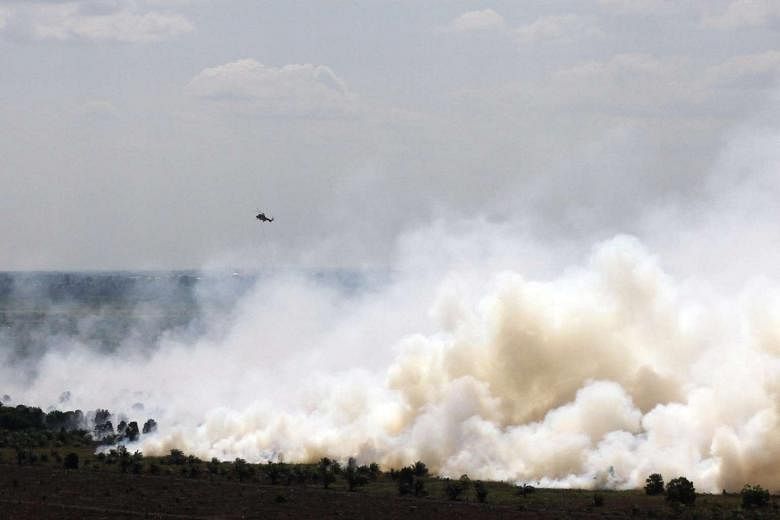KUALA LUMPUR (The Star/Asia News Network) - Malaysia on Thursday (Aug 11) urged Asean member countries to revive "high priority" cooperation to tackle the haze that frequently plagues the region.
Deputy Prime Minister Ahmad Zahid Hamidi, who made the call, noted some of the activities have been dormant for "quite some time" due to lack of resources.
"Let us not only reflect on the issues, but also focus on solutions and encourage one another in achieving our national plans and targets to eliminate the transboundary haze problem," Dr Ahmad Zahid said in a speech at the 12th conference of the parties to the Asean Agreement on Transboundary Haze Pollution (AATHP) in Kuala Lumpur on Thursday.
Singapore's Minister for the Environment and Water Resources Masagos Zulkifli is among regional senior officials attending the one-day meeting.
The high-priority areas or activities include technical cooperation to increase the preparedness for and to mitigate the risks to human health and the environment arising from land and forest fires and haze pollution, implementation of activities to promote zero burning and controlled burning practice, and conduct table-top and simulation exercises to enhance joint emergency response.
Dr Ahmad Zahid said haze experienced in the region last year was the worst on record.
The unprecedented severity of smoke haze, he said, affected millions of people in Indonesia, Singapore, Malaysia, Thailand, the southern part of the Philippines and the northern part of Laos.
"We should be vigilant and undertake concrete actions particularly on preventive and mitigation efforts in order to be better prepared in the event of adverse weather condition in coming years," he said.
The Asean Agreement on Transboundary Haze Pollution (AATHP) was established in 2002 as one of the key steps towards air pollution management in this region to address the annual problem since 1997.
The agreement was ratified by all member states in January 2015.

